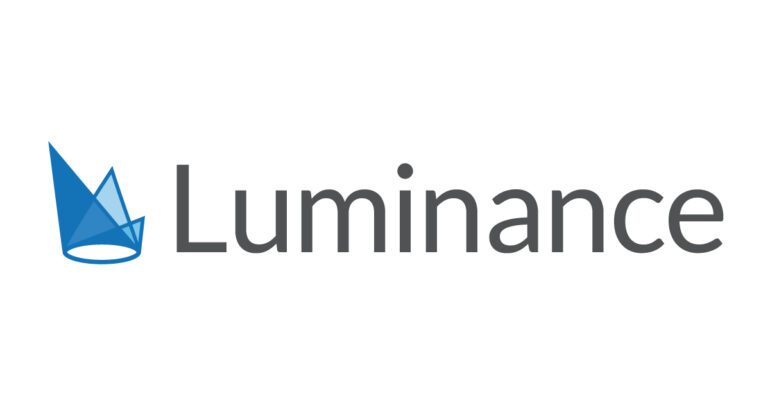TL;DR:
- Luminance’s AI autonomously negotiates contracts, eliminating the need for human involvement.
- The technology streamlines legal paperwork, freeing up lawyers for more creative tasks.
- Autopilot outperforms Luminance’s ChatGPT-like chatbot, enabling independent AI-driven negotiations.
- Legal teams spend 80% of their time on routine document reviews, making this technology highly impactful.
- The AI identifies and modifies contentious clauses in contracts according to company preferences.
- Customized AI solutions like Autopilot are more suitable for the legal industry than general-purpose AI tools.
- The market is trending toward domain-specific AI models for superior performance.
- Luminance’s software pricing is undisclosed, with annual subscription plans available.
- The company’s notable clients include Koch Industries and Hitachi Vantara.
- Luminance, founded in 2016, offers AI-powered legal document analysis software backed by prominent investors.
Main AI News:
In a groundbreaking development, artificial intelligence has achieved a significant milestone by autonomously negotiating a contract with another AI entity, completely devoid of human intervention. The pioneering AI system, developed by the British firm Luminance, harnesses its proprietary large language model (LLM) to conduct comprehensive contract analysis and generate alterations automatically. LLMs represent a class of AI algorithms distinguished for their prowess in versatile language processing and content generation.
Jaeger Glucina, the Chief of Staff and Managing Director of Luminance, articulated the primary objective of this innovative AI system – to streamline the extensive paperwork typically undertaken by lawyers on a daily basis. In Glucina’s own words, the “Autopilot” feature seamlessly manages everyday negotiations, thereby liberating legal professionals to channel their creativity towards more impactful endeavors, unburdened by administrative tasks.
“This is AI negotiating with AI, from the initial contract review in Word to the intricate negotiation of terms, culminating in a secure DocuSign transmission,” she emphasized during an interview with CNBC. Furthermore, this AI is not only legally adept but also proficient in comprehending the nuances of your specific business operations.
Luminance’s Autopilot feature far surpasses its ChatGPT-like chatbot counterpart, Lumi, in terms of sophistication. While Lumi serves as a legal “co-pilot” by enabling lawyers to query and scrutinize segments of contracts for potential issues, Autopilot operates independently of human oversight. Nevertheless, human involvement remains an option for reviewing each step of the process, with the AI maintaining a comprehensive log of all modifications made.
A CNBC demonstration conducted at Luminance’s London offices vividly showcased the remarkable speed at which this technology operates. Clauses were analyzed, adjustments were implemented, and contracts were finalized within a matter of minutes.
The pivotal contract negotiation scenario involved two lawyers on opposing sides: Luminance’s General Counsel and the General Counsel representing one of Luminance’s clients, the research firm ProSapient. Intriguingly, while photographs of the lawyers graced the room’s dual monitors, the driving force behind contract analysis, content scrutiny, and recommendation generation was undeniably AI.
During the demonstration, the AI negotiators engaged in a dynamic exchange concerning a non-disclosure agreement (NDA) – notorious within the legal realm for its stringent confidentiality provisions and intricate scrutiny requirements. Glucina underlined the NDA’s significance, emphasizing that it often acts as a bottleneck, hindering revenue generation, business partnerships, and overall operational efficiency.
Glucina shed light on a compelling statistic, revealing that legal teams expend approximately 80% of their time reviewing and negotiating routine documents. Luminance’s software initiates the process by flagging contentious clauses in red, subsequently modifying them to align with the preferences of the involved parties. The AI meticulously accounts for each company’s unique negotiation conventions.
For instance, if the NDA initially stipulates a six-year term, contrary to Luminance’s policies, the AI promptly rectifies it, substituting a three-year term in its stead. Glucina stressed the wisdom of opting for Luminance Autopilot over more generalized AI tools like OpenAI’s offerings, highlighting its tailored approach to the legal industry.
This viewpoint was echoed by Peel Hunt, a prominent U.K. investment bank, in a recent client advisory. The bank’s analysts expressed confidence in the emerging trend of leveraging domain-specific datasets to transform large language models into specialized ones, predicting enhanced performance compared to their general-purpose counterparts.
As for the cost of acquiring Luminance’s software, specific figures were not disclosed. The company offers annual subscription plans, granting unlimited user access to its suite of products. Notable clients include industry giants such as Koch Industries and Hitachi Vantara, as well as consulting firms and law practices.
Conclusion:
Luminance, founded in 2016 by mathematicians from the University of Cambridge, stands as a trailblazer in the realm of legal document analysis software. Its AI- and machine-learning-powered platform excels in processing vast and intricate legal data sets, simplifying task assignments and tracking progress for entire legal teams. Backed by investors including Invoke Capital, Talis Capital, and Future Fifty, Luminance has cemented its presence as a transformative force in the legal technology landscape. It is worth noting that Mike Lynch, a co-founder of Autonomy and a prominent supporter of Luminance, has been embroiled in legal controversies and currently faces extradition charges in the U.S.

